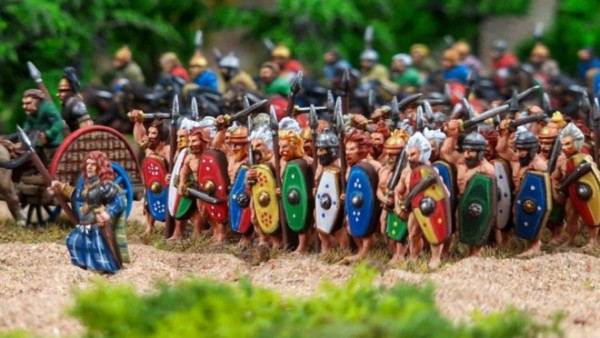Home › Forums › News, Rumours & General Discussion › Show us zee papers.. Passports of your not coming in ever….
This topic contains 110 replies, has 22 voices, and was last updated by ![]() blinky465 3 years, 5 months ago.
blinky465 3 years, 5 months ago.
-
AuthorPosts
-
August 4, 2021 at 6:12 pm #1668153
Gave yourself away with your claims about the motivation to ‘further scientific careers’. Bet you say the same about anthropogenic climate change. No consideration for the motivation of those arguing they should not have to take any precautions?
Seriously, I’ll continue to take the advice of epidemiologists and health professionals thanks.
August 4, 2021 at 6:37 pm #1668155With @khusrau here. As an actual scientist I can tell you now, appearing on tv and in the media does nothing for your career unless;
a) you have a solid career with good publications and are respected in your field (which is much more important for your career)
or
b) you are a poor excuse of a scientist with a reputation for bad research, bad papers, and are not respected in your field, but are respected by those who are looking for any “scientist” who has dodgy claims that support a person’s bias.
The former is a good scientist and I personally know a number of people who have done tv appearances for the news etc because of their expertise in a particular field of the researcher.
The latter are charlatans who are typically on the fast path to being disgraced researchers who get an income appearing on daytime TV mouthing off with dodgy claims.
August 4, 2021 at 7:30 pm #1668172@osbad scientists refer to the larger predictions of cases because it is better to issue a warning that was not needed, than to understate a risk which then leads to catastrophe. They aren’t doing it to further their careers. Some media or news outlets might be doing it for the ratings, but not the scientists.
In terms of where we are (I’m in the uk and assume you are too) yes things look good right now. What needs remembering is the lag in events and numbers. Everything only opened up a couple of weeks ago, so any effect has yet to be fully reflected in the numbers. We also need to consider the kids are all off school now. Once the summer holidays are over there will be a risk of increasing cases in October.
We can’t take a brief period of good numbers as the end of the pandemic. It needs to be several or more months of flat lined numbers before it’s gone. Even then it’s important to avoid importing or breeding our own new variant.
August 4, 2021 at 8:11 pm #1668173Back in July last year, the UK had covid-related deaths at 3 or 4 a day.
Yesterday it was 138.
138 deaths a day is 50,000 a year.
The 7-day average number of deaths has increased *every day* since July 16th. We’re continually being warned that it will get worse before it gets better. This is nowhere near over.
Also…. Toby Young?! Seriously?
A year ago today he was insisting that it was “all over” – it’s even still on his own Blog of Bullshit: https://dailysceptic.org/2020/07/30/
August 4, 2021 at 8:38 pm #1668182“The Daily Sceptic” – question everything isn’t quite the zinger you think it is, if you’re as thick and as ignorant as the failed education advisor and champion of “progressive eugenics”, Toby Young. If you’re going to question something, the very least you should be able to do is understand a) the question and b) any answer provided.
When Toby Young questions anything, it’s along the same lines as a four-year-old repeatedly demanding “yeah, but why?”
August 5, 2021 at 9:29 am #1668357Ad-hominem attacks do nothing to further the argument or the cause. Just because someone may behave like a twat sometimes doesn’t mean the questions they raise are necessarily irrelevant. I could have sourced other articles citing a similar view, but that one put the case well and concisely.
As someone who has been in and around “academia” for many years, I personally have very little respect for the state of universities currently and the quality of the overall scientific process, as well as for the general state of understanding and reporting on “science” in the media. I could cite many utter nonsense scientific papers that get through the system, but for the purposes of this debate it is sufficient to say that the whole notion of “follow the science” is such a complete nonsense where the science is actually, of necessity lagging behind the need for decisions because it takes time to collate and assess actual evidence. Being open and honest that certain procedures are precautionary in the absense of solid science would have been more honest and respected. Also mathematical models are all very well, but need to be taken with far more skepticism than the media generally use, who tend to see them as solid predictions rather than the educated guesses of impact that they really are. And then sadly the media, and civil service usually fails to keep up with the science as it evolves post hoc – for instance additional handwashing has now evidentially proved to be a pointless exercise in preventing spread of covid, as while there was initially a theoretical risk as particles stayed around on surfaces for a long time it is now known that these are largely dead and do not transmit the disease to any significant degree, yet it still forms part if the “hands, face, space” mantra that is still quoted, and forms part of the safety pantomime that many businesses operate to show they are being cautious.
Regarding the ongoing increase in deaths, there is agreement that deaths lag hospitalisations which lag cases. Cases are falling, hospitalisations are falling, deaths are tiny numbers (given ~10,000 people a week die from all causes in the UK) and are expected to fall again soon as they trail the hospitalisations. That is a totally uncontroversial statement. The claim that cases are falling because testing is falling has actually been largely debunked too by the way. It is a claim that is out there, but analysis of the figures doesn’t actually tend to support the view.
As for the “gave yourself away” comment above, I’m not going to even dignify it with an answer. It is just plain stereotyping and hate. It appears that anyone who questions orthodox thought, even politely, is prone to be labled and stereotyped by certain elements within the population, and if you can’t see the hypocrisy in that attitude we have nothing to talk about.
Bottom line, we all have a choice to make, and that choice is do we cower from what is now a tiny statistical risk, or do we decide to live life and just get on with it. I’ll not criticise anyone where they take their personal views, but I will rigorously defend my own right not to have the government over-reach when I believe the evidence does not justify those legal powers. And I will take my own view on whether I participate or not in activities which may increase my own risk or my loved ones. It’s simple rationality as I see it.
If we are going to come down heavy as a society on individuals who expose themselves to the level of risk currently presented by Covid, then there are dozens of statistically more risky actions that logically we should also come down on, but don’t because (thankfully) society takes a more pragmatic view as it has got used to their existence and isn’t freaked out by them. All I am calling for is to stop the societal “freaking out” that exists around this relatively novel disease now and look at it with the same rationality we do other forms of risk to life and limb – such as driving, bungee jumping, getting struck by a meteor, or catching measels etc., etc. all of which carry risk of injury and death.
A statistic I will keep quoting until it sinks in is that in 2017/18 tens of thousands of people died with flu or pneumonia, over 2000/week at its height (a level higher than is much currently the death rate for those dying “with” (as opposed to “from”, a much smaller number, but that’s a whole other debate) covid: (https://www.ons.gov.uk/aboutus/transparencyandgovernance/freedomofinformationfoi/influenzadeathsin20182019and2020) That was a tragedy, and at the time the government was rightly criticised for letting the NHS get to a state where it was struggling to cope with the demand. Yet no one called for the country to be shut down, and radical restrictions to be placed on individual liberty in response. The covid death rate over the whole period, since the start of 2020 is larger, but not that much larger (maybe half-t0-one order of magnitude at most), so it appears entirely irrational now that >90% of the population have antibodies to treat this disease with greater temerity than we do with seasonal flu – protect the vulnerable, let everyone else get on with their lives. It appears utterly irrational do do anything else.
August 5, 2021 at 9:45 am #1668359@osbad if my post came across as an ad-hominem attack I do apologise. It was not my intent.
I am actually quite happy to discuss this with people in general and can appreciate other points of view.
I agree that the scientific method has its flaws.
Also the government isn’t always great at keeping up. I suspect it is partly a “better safe than sorry” attitude combined with political saving face (“never admit you were wrong”).
One of the reasons your attitude about “it’s my own risk to take” gets so much push back though is because you are also increasing the risk for every human being you come into contact with. The death rate of covid-19 is currently very low compared to all other causes of death. The problem is that it has the potential to rise rapidly while the other causes of death remain largely consistent over time.
August 5, 2021 at 9:57 am #1668365Citing Toby Young does nothing to further an argument either, when he has been discredited by multiple sources on just about any topic on which he gets paid by “think tanks” on which to present an opinion; he was (rightly) prevented from running a school and from being a government advisor, when his homophobic, misogynistic and downright dangerous views on eugentics came to light.
The main problem comes down to this:
Participating in activities *may* increase your risk and put your loved ones at risk. And if that was where it ended, there wouldn’t be much more said about it. There are other viruses, spread through behavioural activity, that we accept a risk for.
But coronavirus is spread by simply *breathing the same air* as someone who has it. There is no way that you can limit the risk to just “you and yours”. If you catch coronavirus and are infectious, you could pass it on to anyone who simply breathes the same air as you. If you’re out in public, there is no way to control or limit who breathes the same air as you, other than to prevent people from mixing together.
And *that* is why governments around the world had put such draconian measures in place – because it’s not just about each individual mitigating their own personal risk. Indeed, if that were even possible, we wouldn’t have needed resstrictions in the first place. It’s about preventing people *passing it on to others unwittingly*.
In the 1950s, there was a national programme to vaccinate against polio. It killed less than 700 people a year. It’s not all about deaths – it’s about preventing unnecessary illness, long term poor health and trying to stop the hospitals being clogged up with critically ill patients. Preventing deaths is a small part of the strategy. In the first few months of the pandemic *every non-emergency operation* was cancelled for two months; that backlog still exist – hospitals are still routinely cancelling operations because of a lack of capacity; not a lack of staff, but a lack of beds.
August 5, 2021 at 10:15 am #1668387But none of that invalidates my point. Much of what I do to live my own life puts others at risk. Again, driving is an obvious one. The law holds me responsible for my actions and puts certain restrictions around things, and there has been debate over the years about where the boundaries of “driving with due care and attention” lie. And they have settled at a point which keeps most people safe, but still allows society to function and freedom for reasonable use of vehicles.
Breathing the same air may be the mechanism by which this particular risk is spread about but that is merely detail that describes the risk, and doesn’t significantly impact the principle of risk mitigation that I am talking about which is purely about numbers and maths.
Clearly we do have a responsibility not to put others in harms way. But the risk to the general populace of death, I repeat, is now tiny. Microscopic even. Much lower than very many other things we don’t even think twice about. To the extent that for younger people the risk of serious side effects from certain vaccines, minuscule as that is, is actually greater than the disease itself. So then the debate becomes about what level of restriction is it justifiable to impose on those who have minuscule risk in order to protect those that are actually at a high level of risk (the elderly, those with pre-existing health problems, etc., etc.).
Worked example. My youngest son is 18 and loves clubbing. The rest of the family it is fair to say don’t, and indeed tend not to very often go to “packed” locations where there is a heightened risk of breathing infected air out of choice as we are fairly antisocial by inclination. I could lay the law down as “head of the house” and forbid him to go, because as a 53 year-old overweight asthma sufferer he is putting my life at risk. But as his dad, I see the harm that forcing him to stay home and not be with his friends is doing to him (he usually doesn’t drink because he drives, isn’t particularly into chasing girls, but just loves hanging out with his mates and clubs offer a way of doing that into the early hours of a weekend). My judgement is that forbidding him to go clubbing to protect me, is simply me being selfish, so I don’t do it. Had we had an aged relative living with us, we may have done something different, but all we have done is ask him to consider getting vaccinated, which in the end he chose to do. And so we live with the small chance of harm that remains.
I personally have a great distaste for the idea of forcing young people who are really not at much risk at all from this disease to have a vaccination simply to primarily protect the older population. What right do we have to impose greater risk on others in order to reduce our own? I would contend “none”.
Through my interaction with my son, I don’t think “enforcement” would have made the situation better in any way, and it is my contention that the same is true in society at large. There are limits that we have to accept on our right to impose restrictions on others that may prove a risk to us. If we are at heightened risk we can take measures to protect ourselves, and should only impose restrictions on others in very extreme cases, at least in a society that likes to think of it as free. We should be careful that those decisions are only taken on very, very good evidence and considering all the effects across the piste good and bad for all participants, and not weighting the argument with irrationality, emotion and undeveloped science. Precautionary measures that can be wound back once evidence deems them unnecessary are fair enough, but they should be open to challenge, and those that challenge them should not be denigrated. Unless we want to march into some sort of Stalinist dystopia. Authoritarianism, I would contend, is ultimately a greater risk to life, limb and happiness than any disease, and it is a very slippery slope that is easy to descend but hard to climb.
August 5, 2021 at 10:32 am #1668404This is the kind of “debate” that, ultimately, proves fruitless because there is a world of difference between restricting activity to protect someone from their own behaviour, and restricting activity so that behaviour doesn’t affect others; some people willingly fail to see the difference – some genuinely can’t.
“Here son, you must not go to the nightclub because if you bring coronavirus back it might kill me” is different to “if you go to the nightclub and catch coronavirus you could spread it to any number of people that you may or may not even come into contact with, who may go on to take it to *their* homes and harm *other people*”.
In the first case, there are people who then continue “but that’s a risk I’m willing to take”.
Sadly, that position just looks selfish when applied to the second example.
When a virus is spread by *breathing* then the risk mitigation has to, by definition, be much more stringent than one spread by, for example, exchanging fluid.
August 5, 2021 at 11:52 am #1668428I’m sure most young people can cope not going to a night club for a bit. When serving in the military I spent a year not being able to go out drinking and night clubbing when I was 19 due to being posted in the Middle East. Did I miss being able to go out with my mates drinking? Yes, did I cope not being able to Yes. Did it have any long term affect on me, No.
People moaning about being restricted for a short period of not being able to do something for a health reason come across as entitled and selfish. The government aren’t going to keep these restrictions in place permanently like some paranoid individuals believe.
Even China lifted the restrictions once the virus was under control and they’re supposed to be one of the most controlling countries in the world.
The restrictions were put in place for a reason because they were deemed the best way to reduce the risk and not allowing the virus to run away. Imagine what would have happened had they just ignored it and allowed it to spread, cobsidering the amount of infections and deaths that did occur with those restrictions in place.
August 5, 2021 at 1:47 pm #1668462I think there are a whole series of logical fallacies in the upstream post. Were you vaccinated as a child? If you are 53 in the UK then there would have been a whole cocktail from polio onwards. The risk of contracting some of these diseases was low, almost entirely due to the herd immunity created by the vaccinations but the consequences were severe.
And if you think mathematical modelling is educated guesswork, then you really haven’t had the contact with scientific academia you reckon. One of the big challenges early on was that the models were not known, and the flu model isn’t a great fit. The model improves all the time.
Finally, your decisions are based on your risk assessment, based on what you have read and heard. Extrapolate that to a wider population that has heard and read other stuff, like onions can trigger Long Covid (I kid you not) or drinking bleach works.
Really, human beings are generally pretty rubbish at risk assessment. And the capacity is a bell curve on age as a general rule. The real difference between this pandemic and the somewhat strained analogies is that your assessment of risk doesn’t just endanger yourself. Issues of privacy aside, if there had been broadcast the actual dying of a patient whose lungs were killing them, then the risk perception of many people would be quite different.
I would rather listen to Devi than some bloke down the ‘spoons.
As for my observations. I have actually worked in the collation and analysis of epidemiological data, and as a risk manager, among other things.
The reality from a wargames perspective, is that knowing there are people like you out there, affects whether people like me will go back to conventions any time soon.
August 5, 2021 at 1:57 pm #1668463@khusrau to be fair, drinking bleach WILL keep you from dying of COVID. You’ll still be dead, but it won’t be because of COVID. So…win?
And yeah…I cringed when a certain person suggested that on a live press conference.
August 5, 2021 at 2:09 pm #1668464Darwin Awards all round, and a win for the gene pool.
The only issue, as has been repeatedly pointed out, is that ‘your’ stupidity may cost me my life.
August 5, 2021 at 2:13 pm #1668465Agreed!
-
AuthorPosts
You must be logged in to reply to this topic.








































































